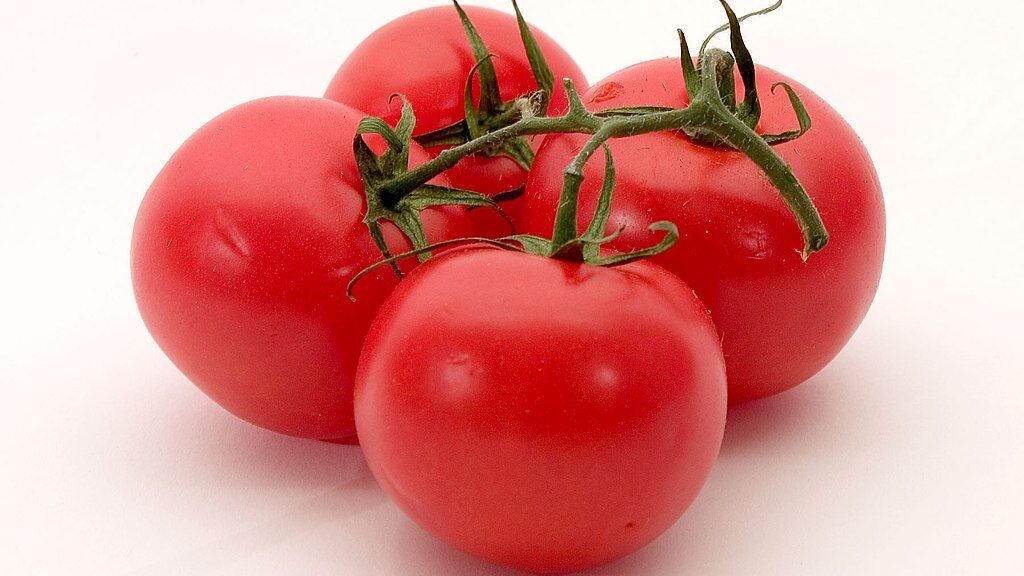Did Brexit eat all the tomatoes?
Alena Ivanova looks at Britain’s enveloping food crisis.

Three years on and those Brexit dividends are really starting to show – just look at today’s stories of rationing of fruit and veg in major supermarket chains across the UK. But is Brexit truly to blame? Does the EU now control the weather and where have all the tomatoes gone?
At the time of writing this, Tesco has just announced that they too will introduce a rationing system to allow as many customers as possible to access the limited supply of fresh produce. This announcement follows a wave of restrictions imposed on shoppers in Aldi, Morrisons and Asda.
Supermarkets are only able to sell what farmers and growers at the end of the supply chains produce. So, it is obvious that one reason why supplies of fresh produce have shrunk is due to unfavourable weather or extreme events, such as floods and droughts. However, while bad weather in Spain and Morocco is the culprit behind the limited crop, this is only half the story when it comes down to the barren shelves in British supermarkets.
The other half is trade. Peppers, cucumbers and tomatoes are not staple products of the British growing season, and especially not over winter. In order for us to enjoy the year-long access we’ve become accustomed to, we rely on trade with other countries, like Spain, Morocco or even the Netherlands (producing a fifth of all tomato exports globally).
Across Europe rising energy prices have meant that greenhouse food production has shrunk. This has left both EU countries and the UK reliant on warmer production areas like Spain and Morocco. Now, we have a limited crop affected by cold weather that has also become more valuable as alternative growers have opted out due to rising costs.
So why is the UK missing out on these import markets? Brexit. The EU is Morocco’s largest trade partner, accounting for 56% of its goods trade in 2019. 64% of Morocco’s exports went to the EU, and 51% of Morocco’s imports came from the EU. In contrast, the UK receives only 2.38% of Morocco’s trade. At the same time, Brexit has meant that the importance of non-EU producers like Morocco has increased substantially for the UK.
It is precisely this imbalance between the UK’s importance as a market (i.e., not very important), compared to the EU market (i.e., hugely important), and at the same time our increased dependence on Morocco, that we see play out in the empty shelves at our local supermarket.
By cutting ourselves off from EU markets, we have left our supply chains, including crucial food supply chains open to these types of acute shortages. This could have been mitigated against with robust preparation (and significant state intervention into the production of food). But instead of this the UK government – swept up in its own Brexit ideology – simply assumed that replicating the EU’s trade deals and signing some more would do the job. They continue to bury their heads in the sand even as Brexit impacts hit the basics of everyday life, like access to fresh produce.
None of this is to deny that the global food supply chain as it currently exists (and as we have been used to, when we were EU members) is ecologically unsustainable and built on exploitation. Given the increasing frequency of extreme weather events and the shared challenges that countries face, now is a good time to think about where our food comes from, and how we can build a better food system for us and for the planet.
A prerequisite for this though is a government and an opposition that is prepared to say the B-word and correctly identify where it is damaging our lives in the here and now, and how it will impact our lives in the future.
Alena Ivanova is a campaigns officer for Another Europe Is Possible and Global Justice Now.
February 22, 2023
Brexit Spotlight is run by Another Europe Is Possible. You can support this work by joining us today. The website is a resource to encourage debate and discussion. Published opinions do not necessarily represent those of Another Europe.





